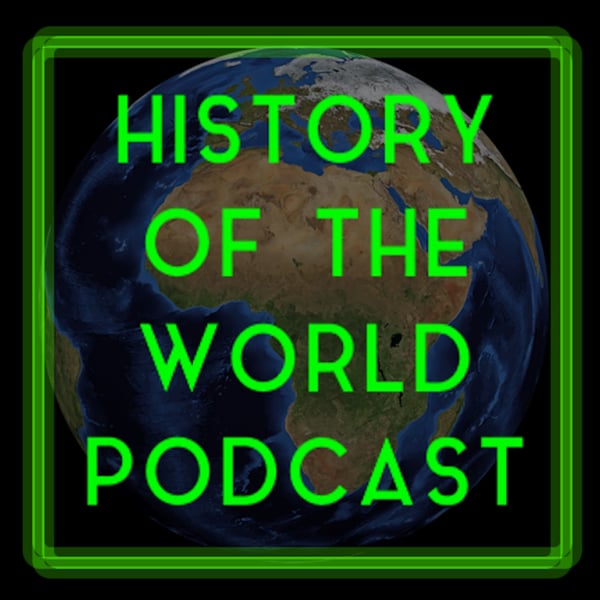Vol 4 Ep 71 - The Mongols, Part Two
History of the World podcast
Chris Hasler
4.8 • 971 Ratings
🗓️ 25 March 2024
⏱️ 42 minutes
🧾️ Download transcript
Summary
1227 - 1635 - The death of Genghis Khan meant that his descendants would have to share the spoils of the massive empire that he had created. The culture of leadership that he created meant that the Mongols would influence many areas of the world before their ultimate exhaustion.
--- Send in a voice message: https://podcasters.spotify.com/pod/show/historyoftheworldpodcast/messageTranscript
Click on a timestamp to play from that location
| 0:00.0 | The History of the World Podcast, written and presented by Chris Hasler. Volume 4, The Medieval World. |
| 0:25.0 | Episode 71, The Mongols Part 2. Let us summarize what we have learned from our most recent episodes about the |
| 0:59.2 | Mongols, the Battle of Jongdu and the lifetime of Chingis-Come. |
| 1:05.0 | In the 12th century, the tribes of the step were still ethnically and linguistically diverse and continuing elements of the ages old |
| 1:16.8 | nomadic lifestyles which had become a thing of the past further south in more developed agricultural societies. |
| 1:25.0 | There existed confederations of tribes, due to the fact that the lands of the step were highly competitive as hunting grounds would be contested over by neighbouring tribes. |
| 1:37.0 | As a young man, Chingis Khan had to win the popularity with people in order to be taken seriously. |
| 1:46.5 | He formed some critical alliances in order to gain some leverage and climb the social ladder by gathering more and more followers. |
| 1:57.0 | He would do this by cany diplomacy and selective aggression. Eventually he would emerge as the most dominant ruler of the tribes of the step. |
| 2:10.9 | After Chingis Khan had united the tribes of the Step, he set his sights on the more developed, wealthy and established nations further south. |
| 2:21.0 | It was an ambitious task, but Chingis Khan's ingenuity and ability to come back stronger after defeats |
| 2:30.4 | meant that he could have the edge over his opponents. |
| 2:34.0 | Initially, Chingiz Khan led the Mongols to subjugate the Tangut of Western Chia, |
| 2:42.0 | before terrorizing the Jirchens of Northern China called the Jin Dynasty. |
| 2:48.0 | The Jin may never have imagined that their established nation of Northern China could be seriously threatened by the Mongols. |
| 2:57.0 | But it very much was, and Chingis Khan incredibly took control of the Jin capital city of Jongdu, which we know today as Beijing. |
| 3:09.7 | Chingiz Khan did not press on in Jin China. Instead he left a Mongol contingent in China while he turned |
| 3:18.8 | his attention west into the state of Karakitti where a troublesome Niamen tribal leader had taken |
| 3:26.4 | control of the Karakitti nation and begun attacking cities under the |
| 3:31.4 | protection of the Mongols. |
| 3:33.2 | Chingis Khan successfully attacked and conquered Karakitti, |
| 3:38.8 | and this would represent a valuable gateway to the great nations of the West as he now controlled the Asian |
... |
Please login to see the full transcript.
Disclaimer: The podcast and artwork embedded on this page are from Chris Hasler, and are the property of its owner and not affiliated with or endorsed by Tapesearch.
Generated transcripts are the property of Chris Hasler and are distributed freely under the Fair Use doctrine. Transcripts generated by Tapesearch are not guaranteed to be accurate.
Copyright © Tapesearch 2025.

